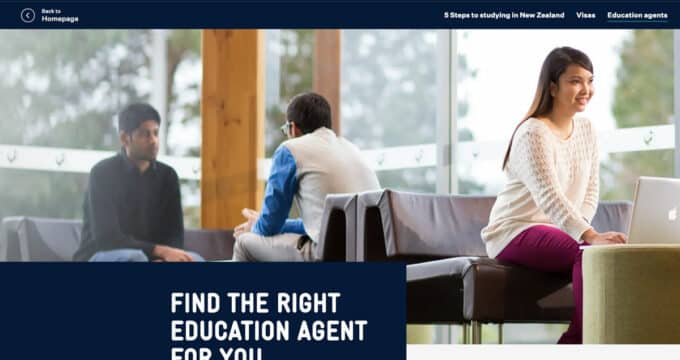ALTO’s best practice guidelines offer educators and agents a framework for effective partnerships
- The goal of ALTO’s guidance is to help agents and educators to develop agreements in which “each acknowledges and accepts their reciprocal commitments to work as true partners”
- The guidelines also serve students with recommendations for how to protect them should a professional dispute arise between educators and agents
- ALTO offers a related mediation service to educators and agents whose agreements state that both parties agree to adhere to the organisation’s Best Practice Guidelines
The use of education agents as a major element of schools’ and universities’ international student recruitment has increased over the past decade. Most recently, the key role of agents has been underscored by COVID-19-associated travel restrictions that prevented institutional representatives from travelling to target markets. Agents provided a crucial connection to students and local, on-the-ground expertise.
Now, a growing body of best practice guidelines is helping to provide a framework for schools and agents working to establish and maintain ethical and effective partnerships. The existence of these resources is likely to further increase confidence in and use of the agent channel given that agents and educators can now model their contracts according to the specific standards of professionalism and good practice.
One recent example of guidance in this area comes from the Association of Language Travel Organisations (ALTO). ALTO’s Best Practice Guidelines were developed after more than 12 months of industry consultation. First published in November 2021, the guidelines have since been formally endorsed by International Association of Language Centres (IALC, which has its own quality standards for schools) along with Felca (The Federation of Language and Education Consultant Associations).
ALTO states the aim of its guide like this:
“We propose that these principles and guidelines become an industrywide code, a badge of integrity, honesty, and transparency. We want them to become shorthand for ethical, open, and caring conduct around the key issues facing the industry. We value the importance of partnership and treat each other with respect, honesty, and professionalism. We will respect each other’s business aims and support each other to deliver excellent student experiences.”
The guide takes readers through a series of steps to developing strong agent-educator relationships, beginning with “preliminary due diligence.” We’ll summarise the first five steps below – readers can consult the guide directly for full details.
Preliminary due diligence by agents and educators: Parties are advised to have at least one meeting before entering into any agreement and to require that their prospective partner holds insurance or is protected in some other way against bankruptcy. Agents should ask for 2–3 references from other agents to verify that a school is legitimate and a good partner, and educators should ask for references from other schools that work with the agent as well as from an international quality assurance organisation membership.
Agreements between agents and educators: The parties should set out the framework for their partnership through a written agreement that defines who is responsible for what, under what conditions, with what payment terms, and with what penalties should one or the other party not meet its commitments. ALTO notes,
“We recommend that ALTO members work together to align their contracts with the recommended ALTO Best Practice Guidelines and include a clause to their revised agreements stating that parties can turn to the ALTO Mediation Panel in case the terms set out in the agreement are not met.”
In terms of payment terms, ALTO notes that there are numerous points to cover in the agreement, including the commission structure, refund policy, conditions of payment, seasonal/regional discounting, marketing contributions, bonuses, causes and processes to terminate the agreement, and more.
Agreements between agents and students: ALTO recommends that agents sign a written agreement with every student and collect course and accommodation fees up front – with other fees payable no less than 21 days before the student departs for their studies abroad.
Payment term considerations for education providers and agents: ALTO lays out guidelines for students to be protected in case of disputes between agents/educators, and has advice for what agents and educators should do when payments fall through or are late.
Repeat clients, direct sales, and joint promotions: ALTO cautions educators against claiming a student as their own “client” once the student is referred to them by the agent: “Any change in the original booking, or a repeat booking should go through the Agency and/or be rewarded by the Agency’s commission.” Similarly, educators are advised not to “undersell” agents by recruiting directly in the agent’s country and urged to consider joint promotions with agents instead.
ALTO offers a mediation service for its members who have agreed to follow ALTO Best Practice Guidelines in their contract, providing another level of confidence to members who agree to the guidelines. By agreeing to ALTO’s guidelines in their contracts, agents and educators know they can access a professional body with set mediation protocols for the resolution of disputes.
For additional background, please see:
Most Recent
-
The surging demand for skills training in a rapidly changing global economy Read More
-
US issues corrected student visa data showing growth for 2024 while current trends point to an enrolment decline for 2025/26 Read More
-
Survey finds US institutions expanding agency engagement and focusing on new student markets Read More


















